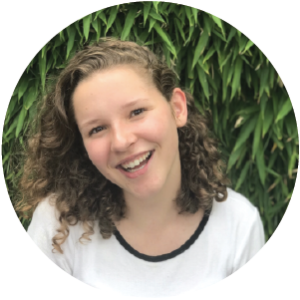

Back in 2020, we highlighted the launch of an exciting new student-led journal club that focuses on intersectionality in psychology, the Intersectional Perspectives in Psychology (IPP) Journal Club. The IPP Journal Club was founded with a commitment to highlight and celebrate research in psychology that addresses the lived experiences and identities of diverse, often marginalized, populations.
After a busy year, we are back for a follow-up interview with the co-chairs as well as some of the new members! In this Q&A, members of the IPP Journal Club share with us what they believe the value of intersectionality is, the lessons they’ve learned, and more.
Co-Chairs of IPP Journal Club
Kiarah O’Kane, Leor Elizur & Victoria Wardell






What has been the most illuminating or memorable experience/learning you have gained from starting the IPP Journal club?
The most illuminating learning experience we have gotten from starting the club is that when you are passionate about a project or idea, you should pursue it and see it through! Sometimes it can feel difficult to get an initiative like this off the ground and that there is not the space or resources to support it, but all it really takes is the initial effort to get an idea to materialize into a club like this. We found that people were quick to support us as we started the club, and we were then able to create our own spaces to have these important discussions, and to find the resources we needed.
Has anything surprised you about the IPP Journal club?
“The most surprising thing we’ve encountered leading this initiative is the ubiquitous sense among our members that intersectional lenses are missing from most of their undergraduate coursework.”
The sheer interest in our group has highlighted a strong desire among UBC students to have these conversations. We have also been blown away by the eagerness of national and international academics to present and support our group, be it in presenting at our meetings or in helping us navigate departmental administration.
Tegan Breker


My name is Tegan (she/her). I’m a third-year student in the Faculty of Arts, majoring in Psychology. I’m part of the UBC Arts Co-Op Program and I’m currently working with the Government of Canada through the Rural Transit Solutions Fund (RTSF). Whether it be on campus through the AMS Signs @ UBC Club or across Canada, my passion is connecting communities and creating inclusive spaces. When I’m not at school or work I love to bike, make cinnamon buns, and write music.
Can you tell why you got involved with the IPP Journal Club?
I got involved with the IPP club because I was curious to learn about the other lenses that are sometimes omitted from the learning objectives in class.
What do you think is the value of intersectionality and social justice within the field of psychology? What does it entail to take on an intersectional perspective?
“Intersectionality is a crucial part of establishing a vibrant and thriving field of psychology. Gaining a better idea of the cultural landscape can support learning outside of the classroom and encourage psychology students to get involved in new ways. The intersectional perspective, in my opinion, aims to draw connections and add diversity to the voices present in the psychological conversation.”
What has been the most illuminating or memorable experience/learning you have gained from joining the IPP Journal club? How does your experience in the club influence your classroom learning and/or your approach to your personal life?
Last year, we had many opportunities to discuss the work of important advances to cultural and intersectional psychology with the academics engaging in this important work. A particular experience that stood out to me was our discussion about how water quality affects youth mental health in First Nations, Metis, and Inuit communities across Canada. It was wonderful to learn firsthand about the implications of these studies. It’s something I’ve carried with me into my work supporting the development of federal infrastructure.
To a student that is not involved in the club, what is the most important feature or value of the club?
I’d recommend this club to anyone who is looking for ways to expand their knowledge past the classroom setting.
“This club provides opportunities to get involved with the material in ways that challenge perspectives and previous learning.”
Everyone in this club is super passionate about how best to increase diversity within the scientific community.
What do you think sets the club apart from the rest?
Unlike other clubs, IPP has fostered a community of like-minded individuals and created an inclusive space to discuss opportunities to challenge the current psychological context.
Khushi Mehta


I am Khushi Mehta, in my fourth year for a B.A. in Psychology. In my first three years at UBC, I was involved with UBC’s Psychology Students’ Association & Campus Lightbox, while simultaneously working with the Culture and Self Lab under Rachele Benjamin, and now as a study coordinator under Gordon Heltzel.
Can you tell why you got involved with the IPP Journal Club?
I was first notified of UBC’s IPP Journal Club through the psychology newsletter. I have always been skeptical of what we are taught in university classrooms, and what we have lauded as classical psychology. Most of these researchers are men, fewer men of colour, and hardly any women at all.
“The landscape of identities, ethnicities and gender is so different now that hardly any of the text we learn within class can be applied beyond a niche population of our world. I loved the idea of becoming more involved with psychology that was intersectional with who was conducting the research, on what, and on whom.”
I was hoping to join a community of like-minded individuals who were also aware of the negligence psychology has demonstrated toward people of colour and people who are part of the 2SLGBTQ+ movement.
What do you think is the value of intersectionality and social justice within the field of psychology? What does it entail to take on an intersectional perspective?
Intersectionality is a method of critical thinking championed by Professor Crenshaw to demonstrate the overlapping identities humans possess and how modern thought processes and policies rarely include those who are marginalized or “othered” within normative society. Caroline Perez, in her novel Invisible Women, illuminates how harmful it can be to conduct our analysis and research on a part of the population that does not represent the whole. Leaving out people from the narrative only creates more assumptions about the “other” that are rarely ever true. This directly affects our ideas about social justice, because, without correct representations within research in the Humanities, our understanding of those different to us is minimal, only increasing the divide within our increasingly polarized world. This is dangerous for a lot of people, whose identities are constantly salient and have no ability to hide parts of themselves even if they wanted to. Here, psychology fails to help people.
What has been the most illuminating or memorable experience/learning you have gained from joining the IPP Journal club?
I think one of the most memorable experiences for me was the talk given by Professor Rachel Brenner who talked about her work within the 2SLGBTQ+ community while delving into the relationship between discrimination, sleep, and anxiety in university students.
How does your experience in the club influence your classroom learning and/or your approach to your personal life?
I am much more comfortable with Psychology, knowing that I can find mentors who are not only always men. While there is nothing outwardly wrong with having supervisors who are men, it would be inspiring to find myself surrounded by women who are researching and writing about their life experiences through a scientific lens.
To a student that is not involved in the club, what is the most important feature or value of the club?
Psychology might seem like it is not as politically active as you would like it to be, and this club is for that moment when you begin to feel that way.
“IPP Journal Club creates a safe space within academia for those who have not been included in research and are largely left out of the narratives and policies that guide their day-to-day lives.”
What do you think sets the club apart from the rest?
The IPP Journal Club thus fills in a niche for those who are interested in sociology, anthropology, gender, race, and social justice issues, as well as law and society. It takes intersectionality from meaning identities on an individual level to identities as careers as well, helping unite a front of academics who research broad topics that influence our psyche.


